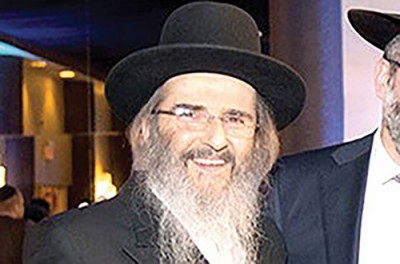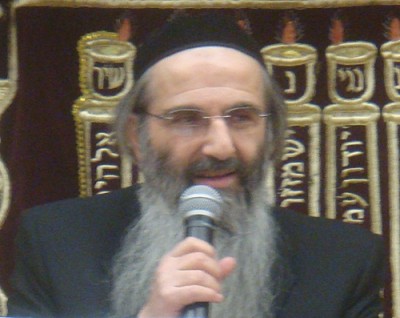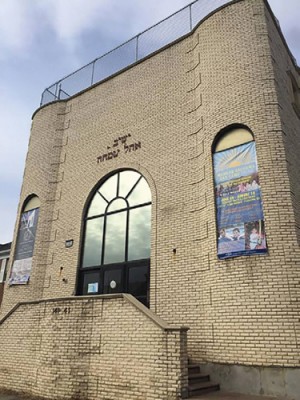


(Part 1)
Look around you. Chances are, if you’ve picked up this newspaper, you are in Queens or have been there recently. Today, the majority of the world’s Bukharian Jews live in Queens; they’ve been flocking here since the 1990s. This community has spent the greater part of two millennia in the heart of Central Asia and now seems firmly established and flourishing in the world’s borough. Its journey across the globe and its development has a wonderful backstory to tell about the strength, growth, and even evolution of a unique people.
To uncover this story, I interviewed Rabbi Igal Haimoff, a moving force behind the integration of Bukharian Jewry in America. His story begins at about the time when Bukharian Jews began emigrating to the U.S., and covers their community up until the very present. He graciously allowed me to interview him for this article and I hope to present his personal story over the span of several articles. The following material has been stylistically edited to reflect the life, sacrifice and dreams of one of Bukharian Jewry’s greatest advocates.
I first asked Rabbi Igal Haimoff to share his thoughts on our new newspaper.
BJL: Why do you look forward to and hope for the success of this publication?
Rabbi Haimoff: This paper importantly fills a gap that was overlooked for too many years. We finally see a newspaper that will cater to the younger, English-speaking generation. We need to always move forward and towards a better future. I hope this publication will be utilized as the tool that it can be to revolutionize the Bukharian community.
BJL: Any advice how to best utilize the paper?
Rabbi Haimoff: I hope the paper publishes all types of articles that address the specific problems facing the community. As a flourishing society, we can benefit from articles addressing social and psychological concerns. The paper would render a great service with articles addressing family issues, substance abuse, divorces, etc. We need help not only addressing these issues, but also instructing the English-speaking public how to avoid those problems. If professionals wrote these articles with their expertise, I’m sure it would do wonders for our community.
BJL: Though you have been so involved in this community from the time of its inception, you actually hail from the holy city of Jerusalem. Can you tell us a little about your family history and background?
Rabbi Haimoff: My grandfather, Simchah Haimoff, was a dayan (judge) in Porat Yosef (an advanced center of Jewish-Israeli scholarship) in Jerusalem. Actually, our shul, “Ohel Simcha,” was named after him. He was recognized as a brilliant sage but unfortunately passed away at the young age of thirty-eight. He left behind his wife and eight children, one of whom was my father. His wife was a wonderful and brave woman who determinately raised her children on the path of the Torah. A little while after my father married, the Israeli war of Independence broke out and my father moved the family to Tel Aviv. And so even though three of my brothers were born in Jerusalem, I did not have the merit [chuckles].
My father supported the family with proceeds from his grocery shop in northern Tel Aviv, which at the time was known for its particularly secular residents. My father had five boys and one daughter, and my father sent us all to yeshiva. The name of the school was Chinuch Atzma’i, and it still operates today. Throughout my younger years I was recognized as a “challenger” [chuckles], and after graduation I attended Karlin-Stolin high school. It was an interesting contrast because up until high school I was trained in Litvak (Eastern-European methodology) style and now was introduced to more Chasidic style.
As time went on I witnessed my brothers enter the army and join the workforce, since my parents needed financial help. At a certain point I remained the only child to stay in Yeshiva and even continued to advanced studies. However, after a while I decided to get a “taste” of the army and challenge myself further. I entered the army and can tell you that what I learned there has actually been useful for me until today.
BJL: You can be as unspecific as you like in answering the next question, but I have heard that you served in an intelligence unit?
Rabbi Haimoff: Yes, eventually. For the first four months I served in an entertainment capacity [soft chuckle] as a singer on stage for the troops. After that they shipped me into intelligence. I cannot talk much about what transpired, but I can tell you that it was very interesting, challenging, and tense. My parents didn’t know what was happening and I could not tell them.
BJL: How old were you at this time?
Rabbi Haimoff: I was twenty-three at the time. Interestingly, whatever I learned in the Yeshiva from the Rebbeim (teachers) and Mashgichim (counselors) was exactly true about the army.
BJL: What do you mean by that?
Rabbi Haimoff: I mean the framework and mindset of the high command, the strategy and long-term goals. Everything my teachers taught me about the army’s “mindset” was exactly accurate. I was in this situation during the 1973 war. What an unusual situation it was. Our unit warned the high command that things were looking fishy. All the arrows were pointing towards a war of some sort, but strangely enough are warnings were not heeded. I was in shul at the time the war actually broke out, a hazan for the Yom Kippur prayers. It was musaf time (midday) when the war sirens began blaring. It was a horrible day; thousands of Jews died…there were buses coming down every street, calling reservists and enlisted men. Like I said, the country was caught off-guard and we were not at our posts.
I heard the bus driver call out “Haimoff, Haimoff” and I knew that I had to go. My father looked at me as I stepped down from the shtender (leading prayer bench) and asked me where I was going. He took over the prayers as I left the floor and my mother followed me down the stairs towards the bus, hugging me and asking how I would contact her. I told her I would find a way to call her.
As I got on the bus, I met the driver, a man with a long beard and tallit (prayer shawl). We were all fasting that day, on that remarkable Yom Kippur. Back at the base there was another unusual scene: the religious, the secular, everyone together was praying with unbelievably great emotion. We had so few prayer books but everyone wanted to pray. That was a great unity that I witnessed, ten men praying out of one mahzor (holiday prayer-book). It was a tragic moment that brought out the best in our nation: true unity and brotherhood.
As the war progressed, we witnessed many miracles, and the tide eventually turned. There was no question in my mind, and in the minds of many other people, that our combined prayers reached the heavens. On the day of fear and repentance began a day of miracles for our people, and it was clear to everyone at the time.
To be continued…
Visions, Sacrifice, And Hard Work: An Interview With Rabbi Igal Haimoff
Typography
- Smaller Small Medium Big Bigger
- Default Helvetica Segoe Georgia Times
- Reading Mode




